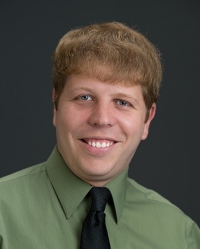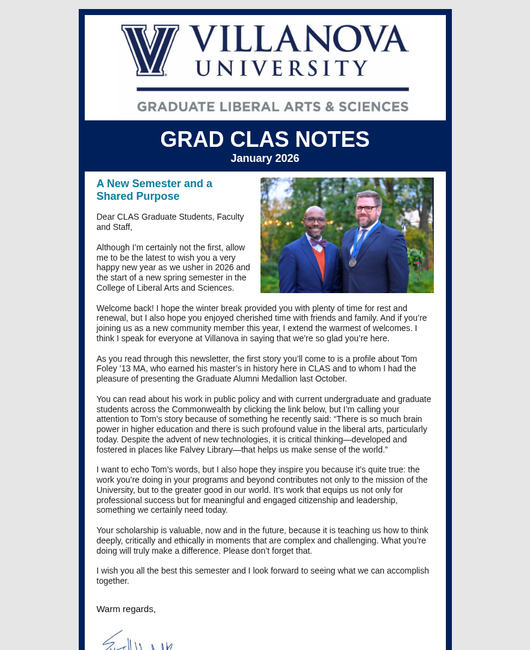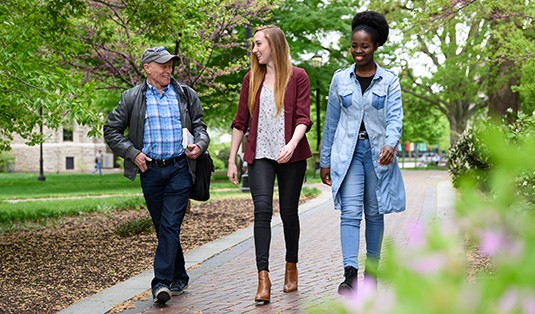Applied Statistics and Data Science Master’s Program Evolves to Meet Industry Demand, Expand Career Options


Paul Bernhardt, PhD, Director of the Graduate Program in Applied Statistics and Data Science
For many years, U.S. News has ranked “Statistician” as one of the best and fastest growing jobs in the country. More recently, “Data Scientist” has also appeared high in those rankings, a trend that mirrors changes in the industry, says Paul Bernhardt, PhD, director of the Graduate Program in Applied Statistics and Data Science at Villanova University.
“‘Data science’ has been increasingly used instead of ‘statistics’ when referring to data-oriented tasks and job positions. In some cases, data science may refer to specific types of statistical analysis methods, while in other cases it also refers to a mix of computer science and statistical skills,” he says.
To better match industry demand, Villanova has adjusted the curriculum and changed the name of its master’s program in applied statistics to “Applied Statistics and Data Science.” The curriculum has been constantly evolving, though, according to Dr. Bernhardt.
“Our curriculum began changing in the direction of data science about ten years ago when we introduced a statistical programming requirement,” he says. “Since then, we have added a few additional courses such as Data Mining and Predictive Analytics and Deep Learning. These courses teach important topics in data science, such as machine learning and artificial intelligence, from a statistical perspective. Due to this purposeful approach, we feel that we have found a way to continue to offer top-level statistical training while also incorporating more programming skills and adding new courses in data science.”
Beginning in Fall 2023, students in the graduate Applied Statistics and Data Science program will be able to choose from three curriculum tracks: Applied Statistics, Biostatistics and Data Science. Students will have different options for the required courses and electives, including more course choices from Villanova’s graduate Mathematics and Computing Sciences programs, depending on which track they choose.
These curricular changes were well received by current master’s student Brian Sevy, who plans to become a data scientist upon completing the program.
“I have taken various statistics courses that have advanced my knowledge in that area, such as Regression Methods and Statistical Programming, and I am excited for the opportunity to take more data science-oriented courses next year,” Sevy says. “Additionally, more coding elements and "Data Challenges" have recently been added to many of the required statistics courses, which give students added experience in interacting with real-world challenges related to acquiring, cleaning and analyzing data effectively. I truly believe these data-science-related courses and data challenges will accelerate my learning process in this field and better prepare me for the workplace as I pursue my career dream.”
For Dr. Bernhardt, the program changes to include more data science coursework were made for that exact reason—to better prepare its students for successful and fulfilling careers in a dynamic employment landscape.
“We believe that our program will help our graduates apply for a diverse set of jobs, from pharmaceuticals to banking to big and small businesses to government,” Dr. Bernhardt says. “Since our program still focuses on building the core foundations for statistical knowledge while also offering relevant and cutting-edge training in data science, we believe that our students will be well prepared for a variety of positions in today’s job market. In this sense, we feel that our program has major advantages over fast-track data science certificates/programs that do not get deep into statistical methods as well as traditional statistics programs that focus mostly on theory or classical statistical topics.”
Maintaining this blend of theory and practice is important for current student Cooper Allton.
“The program offers significant preparation in computational approaches that are often considered to be within the domain of data science, while also retaining a rigorous focus on statistical theory and methods,” Allton says. “The name change is consistent with program’s course offerings and is likely to help students better signal to potential employers that they have received strong training in core areas of both statistics and data science.”
Learn more about Villanova’s graduate programs in Applied Statistics and Data Science.


